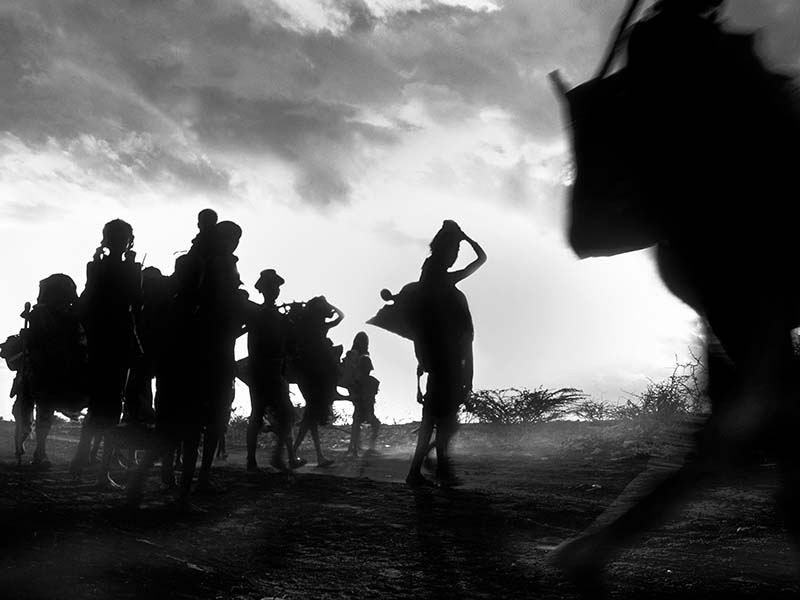Are There Parallels Between the Holocaust and the Migration Crisis Today? Discussion by Althea Maxius
The Holocaust
It is no secret that across the world, there‘s great abhorrence towards the treatment of the Jewish people during the Holocaust and, rightly so, empathy for the survivors and their families. The economic and social hardship felt by the German people following World War I led to the “wholesale” implementation of one of the most brutal government policies in history.
The events of the Holocaust saw systematic, bureaucratic, state-sponsored persecution and murder of about six million Jews and thousands of Roma Gypsies by the Nazi regime and its collaborators from 1933. So much so that, each January, the world commemorates Holocaust Memorial day to make sure we do not forget the needless tragedy.
The parallels with the Migration Crisis today
Understandably so, many people take the view that refugees’ experiences of conflict, persecution and war caused by inequality and widespread tyranny cannot be compared to the Nazis virulent hatred towards the Jewish people through the perpetuation of propaganda campaigns claiming, “being Jewish was like being sub-human”, Holocaust Memorial Day Trust
Different Time, Similar Treatment
It is not difficult to see the historical resonance between the events of the Holocaust and the refugee crisis in modern-day Europe and the rest of the world. All of those who suffered were forced to flee their lives and countries only to face more persecution and, in many cases, the loss of their lives. Refugees today are not constantly subjected to mass killings in concentration camps. However, aid agencies report that hundreds of thousands of people have lost their lives in modern world conflict, with over 5 million people fleeing persecution in recent times. At the end of 2020, the UNHCR reported 82.4 million displaced people worldwide. The humanitarian crisis in Europe sees thousands of people fleeing conflict, persecution, torture and oppression to seek sanctuary in other countries. If they did not meet their demise during their journey to sanctuary, they were frequently met with hostility and indifference from the countries they hoped to receive safety. These are similar experiences of thousands of Jewish people whom European Counties refused sanctuary.
Stating the fear of overcrowding and increase in unemployment as the main reasons. In Europe today, this view is also similar about asylum seekers and refugees; that those seeking sanctuary are here for economic reasons or will bring ideologies that can be detrimental to Europe “Every genocide, whether the Holocaust or Rwanda, begins with WE VERSES THEM” – Dr Susan Benedict, Professor the University of Texas Health Science. We should never forget that during the Holocaust, Roma and the Gypsy traveller communities, those with disabilities, from the LGBT communities and of specific religious background were subjected to the same treatment whether they were Jewish or not. Today there are many sanctuary seekers whose asylum claims are based on these same issues and does not fulfil the definition of a refugee according to the 1951 Convention and the 1967 Protocol on the right to asylum.
In Wales today, it is not difficult to find many who strongly believe that the UK has a responsibility to provide sanctuary to those who seek it and that refugees deserve equal access to dignity and safety after persecution. However, you don’t have to look too far to find negative comments and dangerous opinions and suggestions about the refugee crisis, all of which creates an increase in the treatment of millions of displaced people worldwide.“Those who cannot remember the past are condemned to repeating it, and this is exactly what is happening today” - Vivien Spitz Author and Court Report for the for The Nuremberg War Crime Trials
Conclusion
It may be difficult to state unequivocally that the Holocaust is very similar to the refugee crisis today. However, there are certainly more commonalities to suggest that history could be repeating itself. The similarities and differences between today's refugee crisis and the Holocaust should help us think about how individuals and governments should respond to the refugee crisis today. If we do not, we too can lose.sight of what is important; that the protection and preservation of life are paramount, put humanity at the forefront of our thinking, learn from the past and be vigilant to ensure that we always continue to protect refugees rights to safety and dignity.
Throughout Africa communities have no option but to migrate to find safe havens. Pic Glenn Edwards Somalia 1992





